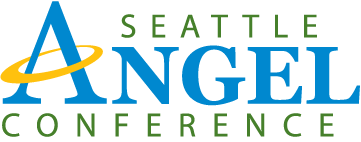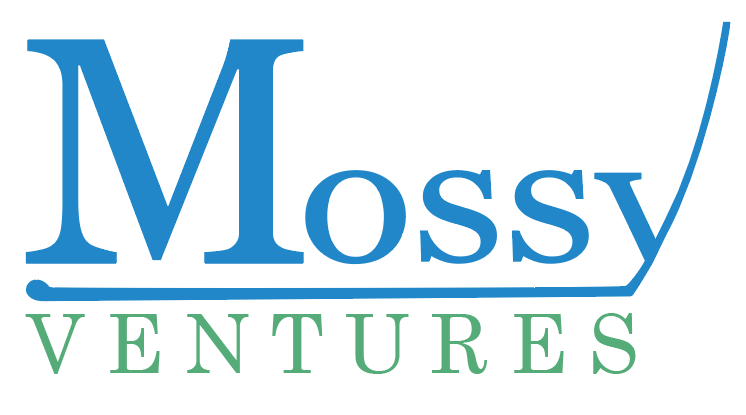If your startup is raising an early seed round this spring, the Seattle Angel Conference is a perfect springboard to meet investors and fine-tune your message. And offers a chance to win $200k investment!
The blog-series “Startup People of Seattle” introduces some of the key personas in the ecosystem to learn more about what they are doing, to share their thoughts and ideas, and to promote networking.

In our 18th nterview, meet Brett Greene:
“Two mistakes I regularly see founders make (being too focused on the own idea and being too focused on exit strategies) have one thing in common – The primary focus is not on solving a problem that matters to people. ‘Matters to people’ means they care about it, are unhappy with existing solutions, and are willing to pay for a better solution. Identifying such a problem is what entrepreneurship is all about, and the most promising way of going about this is by talking to customers!”
Brett Greene is founder and CEO of New Tech Northwest – the fastest growing monthly event group in Meetup.com history (out of 300,000 international organizations) with over 45,000 members.
https://www.linkedin.com/in/brettgreene/
Q: Could you please introduce yourself and talk about how you got into startups?
A: I am founder and CEO of New Tech Northwest. What I do is connect people. I am building a tech community that offers a support-system for everyone involved. New Tech Northwest is about building relationships rather than just a business network.
I got into startups around 2006. I lived in Boulder, Colorado at the time. I started going to the New Tech events there and mentored some Techstars startups. This was when Techstars just got off the ground. At the time I owned a digital marketing company, so that expertise was what I could offer to founders.
In 2012 I moved to Seattle and together with Red Russak I formed the idea of starting New Tech Northwest.
Q: Could you tell me more about New Tech Northwest?
A: Like I said, New Tech Northwest is a tech community based on the values of building relationships and giving first. We want that members treat each other like neighbors or friends, not just like business partners. So, members are expected to be interested in each other and offer support to each other.
At the foundation of New Tech Northwest are monthly networking events in Seattle, Bellevue, and Portland. In Tacoma these events take place quarterly as well. What makes the New Tech Northwest events special, I think, is the wide variety of people who attend – students who are in coding school and are looking for jobs, recruiters, investors, founders, engineers, sales people, service providers – A mix of all these people can be found at New Tech events.
Aside from the in-person events, members have formed social media groups to discuss topics, ask questions, share advice, etc. We encourage all members to share whatever it is they need next on their journey with our community. What we see happening is that members help each other find jobs, mentors, customers, etc.
We have about 45.000 members now and grow by 500 every month.
Q: Having been part of Seattle’s startup ecosystem for about seven years now, in your opinion, what are some of its strength and weaknesses?
A: The No.1 strength is the collaborative spirit. In Seattle’s startup ecosystem people want to help each other succeed.
Another strength that stems from the fact that big companies like Amazon, Microsoft, and Boeing have been part of this ecosystem for a very long time is that Seattle’s startup ecosystem is full of ex-employees of those companies who have money, experience, and relationships already when they are starting their businesses. Contrary, in Boulder for example, most founders are younger than 30 and have none of the above-mentioned things. They start from zero. I find this to be a real strength of the ecosystem here.
On the negative side, the complaint I hear most from founders is that business angels tend to say “maybe” too much. Founders would prefer to hear clear “yeses” and “no’s” over getting advice, spending time implementing the advice, and then in 9/10 cases still never attracting investment from this angel.
Q: You pointed out that you think of it as a strength that many founders in Seattle have had a corporate career which provided them with a certain wealth among other things.
I have observed two viewpoints regarding this: Some, like you, prefer founders who come from a place of simply believing in an idea and wanting to see it become reality, without the financial incentives being at the core of their considerations. People who have this opinion tend to argue that those founders are more likely to get through difficult times because they can support themselves.
Others argue they prefer founders who cannot rely on their past savings because they are typically hungrier. A lot more is at stake for them, so they tend to work harder and not give up as easily.
What do you think about both those argument?
A: I think that there are a lot of myth about startup success. From my research, statistically a higher percentage of startups succeed in which the founder is over 40. I believe that resources and experience explain this difference. However, I cannot say for certain that I am right about this. Many people have different opinions on what tend to be qualities of successful founders, and I am open to being proven wrong.
Q: What are some of the key organizations in Seattle’s startup ecosystem that you can think off?
A: Seattle Angel Conference has been around for a long time. Fledge is doing great things. WTIA offers a lot for startups. Another key organization is The Female Founders Alliance. Founders Live is helping very early stage companies. Cofounders Connect has a Facebook group and they do events as well. Examples for coworking spaces are Create 33, Impact Hub, and WeWork.
Q: Who are some of the key people in the ecosystem?
A: There are many, but some of the names are:
Q: What recommendations would you give someone who is new to the ecosystem and wants to get involved?
A: I would recommend signing up on the email lists of the Seattle Angel Conference and Startup Digest. There is also an event calendar by Geekwire that I would suggest looking at regularly, and our website can be helpful as well I believe. Under >Connect >Community Connections we list many of the organizations and resources available to founders in the Northwest.
All this is helpful to get an overview of what is happening here in this ecosystem and to filter what is most helpful to the individual. Eventually, though, people must go to events, meetups, etc. to network and build relationships. There really is no shortage of things going on in Seattle, we have about 400 tech meetup groups alone for example, but in the end showing up is key.
One meetup I want to recommend is “6 Month Startup,” which Dave Parker organizes.
Q: What do you think are success-factors for startups and what are typical mistakes founders make?
I think first and foremost a founder must be passionate about his work. Building a company just for the money, and with the exit strategy ‘being bought by another company’ in mind, almost always fails. The founder’s main goal must be to solve a problem and help people. Aside from this, founders also need to have a strong support system that helps them get through the difficult times every founder faces.
Another mistake I often see founders make is: Having an idea for a product/solution, thinking it’s amazing, putting time, energy and money into building that product, and assuming people will buy the product once offered and marketed to its target customers. Founders who go about their startup this way must most often realize the hard way that their assumption ‘people will buy this product’ is wrong. They wasted a lot of resources for nothing. Instead, founders should talk to minimum 20 potential customers before doing anything else to find out: (1) Are they actually interested? (2) Would they buy? (3) What would they pay for it?
Many product companies fail because the founder is overconfident in his ability to understand what people want. Reality is that there is a big difference between wanting and needing. A founder might even identify something that would help people (they need a product to fix a problem), but unfortunately that does not yet mean that those people also want the product and will buy the product. Potentially they don’t care about the problem enough, or they are happy with the solution they currently use.
The two mistakes I regularly see founders make that I have talked about so far (being too focused on the own idea and being too focused on exit strategies) have one thing in common – The primary focus is not on solving a problem that matters to people. ‘Matters to people’ means they care about it, are unhappy with existing solutions, and are willing to pay for a better solution. Identifying such a problem is what entrepreneurship is all about, and the most promising way of going about this is by talking to customers! Thinking off startups this way, being curious about the customer becomes a key trait of successful entrepreneurs.
One thing I implied in all this is that startups must stand out. So, startups must have something that differentiates them from competition. Otherwise, all I have said so far regarding entrepreneurship being about ‘solving a problem for people who are unhappy with existing solutions’ does not make sense. In fact, not “simply” repeating an existing business model is at the very core of the startup definition.
Startup Def. according to Steve Blank: “A startup is an organization formed to search for a repeatable and scalable business model.” (https://steveblank.com/2010/01/25/whats-a-startup-first-principles/, Last retrieved on 11/07/2019)
What founders want to achieve is that, while there may be competition on the surface – if there isn’t, most likely there is no market – the startup provides some sort of value to customers that is unique to the business and that customers cannot find anywhere else. The book “Blue Ocean Strategy” is an interesting read on this topic.
Here are some things I learned from this interview:
In the interview Brett mentioned some resources and organizations, find out more about them here:
About Seattle Angel:
A strong ecosystem creates an environment that allows startups to thrive. Seattle Angel’s goal is to strengthen Seattle’s startup ecosystem by increasing the access to funding for entrepreneurs to push their ideas further.

About the author: Sven Goepfrich
https://www.linkedin.com/in/svengoepfrich/
Sven Goepfrich is currently finishing his MBA in Syracuse. His studies focus on technology, innovation and entrepreneurship. At his school, he is working for the department of finance. Sven was actively interning with the Seattle Angel Conference in summer 2019. He is currently looking for full-time career opportunities in this field.
If your startup is raising an early seed round this spring, the Seattle Angel Conference is a perfect springboard to meet investors and fine-tune your message. And offers a chance to win $200k investment!
The best way to start early stage investing is to learn by doing. The Seattle Angel Conference is built for just that.
Seattle Angel Conference (SAC), a production of Mossy Ventures, announces the SAC 22 winners of the business competition investor education program. Seattle Angel Conference (SAC), a production of Mossy Ventures, announces the SAC 22 winners who have participated in an progressive elimination program that started with 80+ early stage startups. On November 16, six finalists […]

